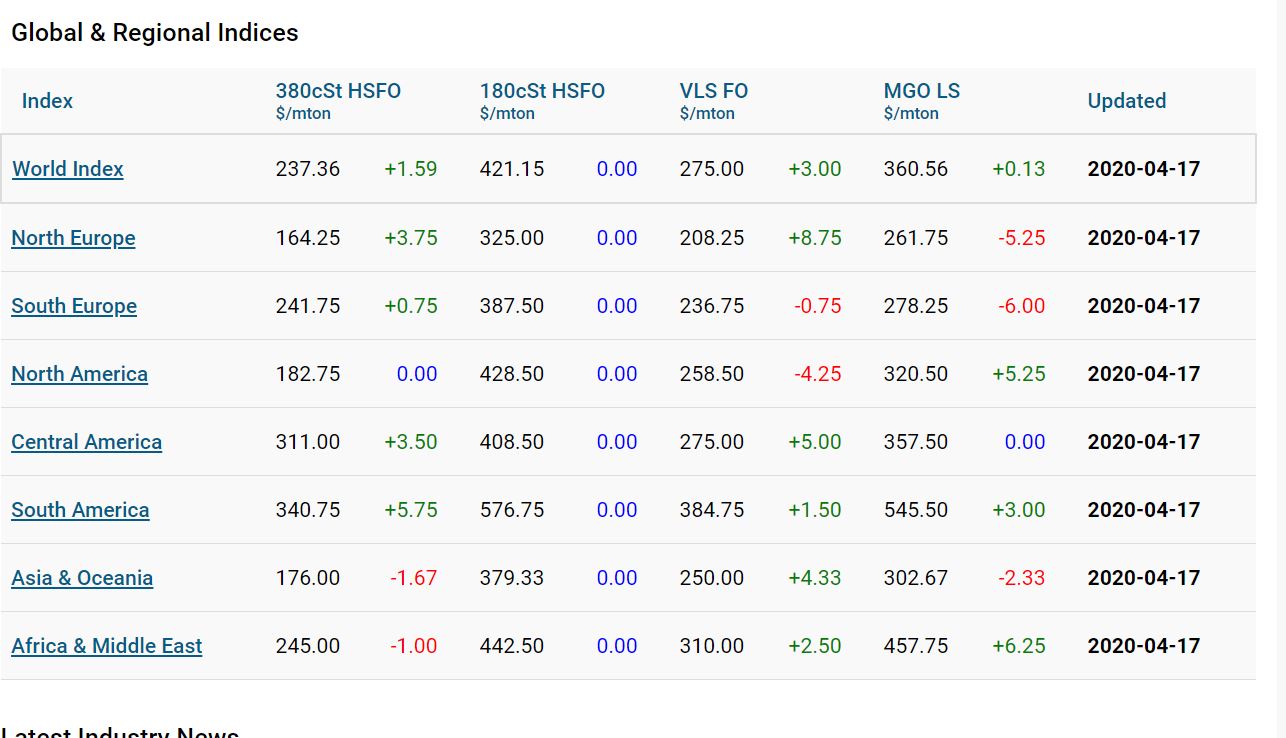The European Association for Forwarding, Transport, Logistics and Customs Services, CLECAT, believes that some shipping lines are using bunker adjustment factors (BAF) to claw back losses made during the Covid19 viral crisis.
Lines apply a calculation for fuel charges as the price of fuel is volatile and can change significantly over a short period of time, as seen earlier this year. However, the BAF is calculated at predetermined times and a steep decrease or increase could mean that charges are quickly out of date.
CLECAT said in a statement on its website on 16 April, “Over the last two months, the liner industry has benefitted from a freefall in the price of very low-sulphur fuel oil (VLSFO), accelerated by the widespread economic impact of Covid-19. The collapse of marine bunker prices came as a surprise soon after the steady rise in costs last year caused by the IMO 2020 low-sulphur regulation.”
According to CLECAT that would ordinarily “be good news” for those affected by the economic impact of the Corona crisis. That is not the reality, in fact due to the lag in the calculation of the BAF liner shipping customers have “not yet had a relief from the 35% drop in fuel prices of very low-sulphur fuel oil (VLSFO).”
CLECAT, however, went further, accusing the lines of manipulating the time lag when it suits them.
“The time-lag of adapting the fuel indexes is usually long when the fuel prices drop and short when the prices rise. Currently, with the drop of fuel prices, carriers are tied up to the bunker surcharge indexes based on high fuel prices,” said the CLECAT statement.
The forwarder association believes that “fair-play” and “sharing the burden” should be the guiding principles of the application of the BAF and that there should be transparency in the application of bunker surcharges.
Willem van der Schalk, President of CLECAT, commented on the concerns of the European freight forwarding community: “This gives rise to the suspicion that carriers are using the bunker adjustment factor (BAF) as a revenue-raising tool as well as a cost-recovery during the COVID-19 crisis.’ He continued: ‘Whereas freight forwarders understand that carriers are facing increased costs to secure continuity of services, all other parties in the logistics supply chain are facing disruption and fall-outs, not the least our clients, the shippers.”







